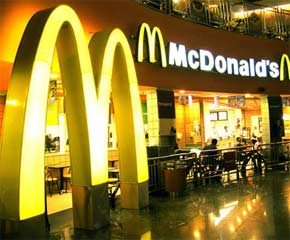Matthew Howe, senior vice president with McDonald’s UK, said the fast food restaurant should eventually be able to replace the six million litres of diesel its fleet used last year with cooking oil from its 1,200 restaurants in Britain.
Howe said the fuel would not smell of the company’s food. “If our trucks drove around the High Street and it smelt of our fries, what a Pavlovian effect, it would be fantastic but unfortunately it does not,” he said. “It would have been one of the best marketing campaigns we could ever have had,” he added.
The biodiesel will initially be made up of 85 percent used cooking oil collected from around 900 McDonald’s restaurants and 15 percent from pure rapeseed oil.
“As we get better at the refinement we will be able to remove virgin rape (oil) from the process,” Howe said. He said the company keeps its used cooking oil apart from other supplies.
Healthier Oils
McDonald’s UK is using a mixture of high oleic UK rapeseed oil and sunflower oil from Spain to fry its food. The company switched to the formula in April as part of its strategy to stop using hydrogenated fats. Hydrogenation can lead to the creation of trans fats which may have worse effects on the human body than saturated fats, according to Britain’s Food Standards Agency.
British farmers have begun to plant high oleic varieties of rapeseed but supplies are still very tight with imported high oleic sunflower oil much more readily available.
Seed companies have expressed concerns that the growth of demand for rapeseed oil from the biofuels sector was hampering the expansion of healthier but sometimes lower yielding high oleic varieties. By using the fuel, McDonald’s will save 1,675 tonnes of carbon per year, the company said.

